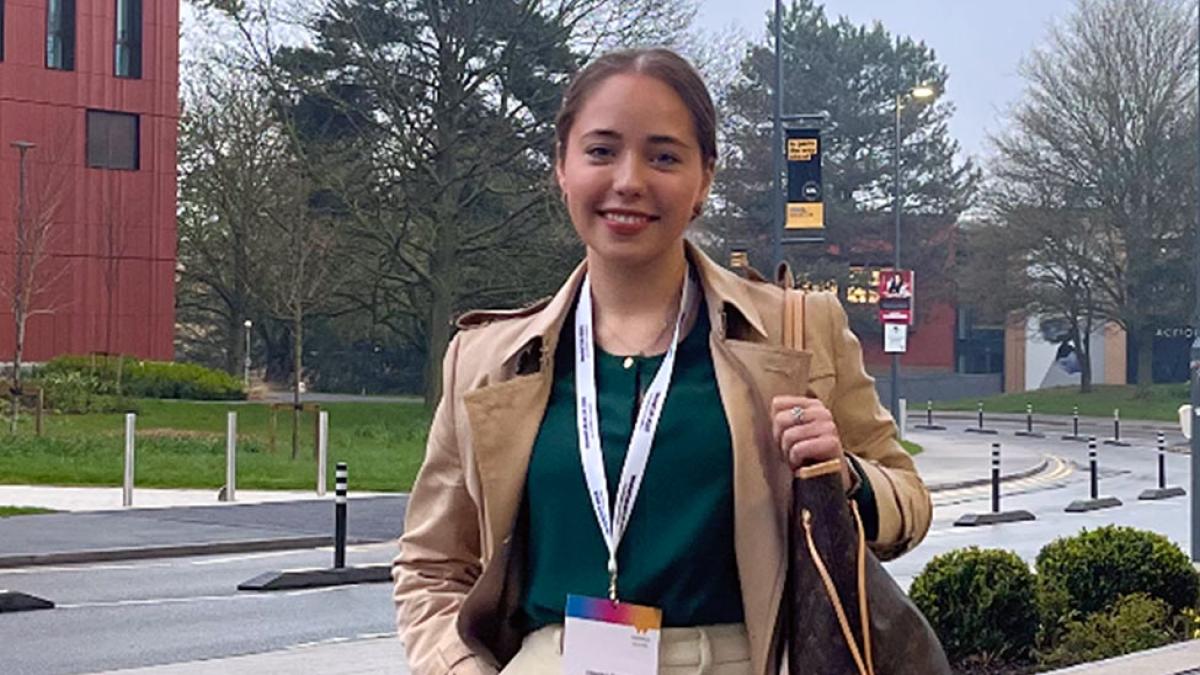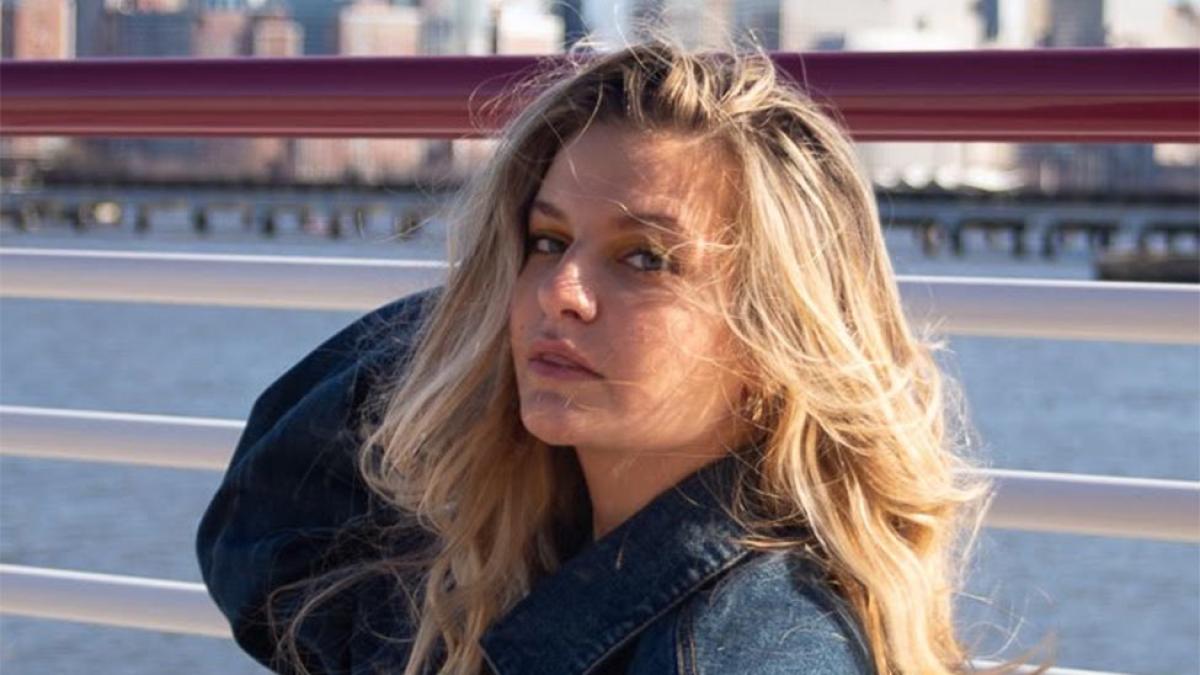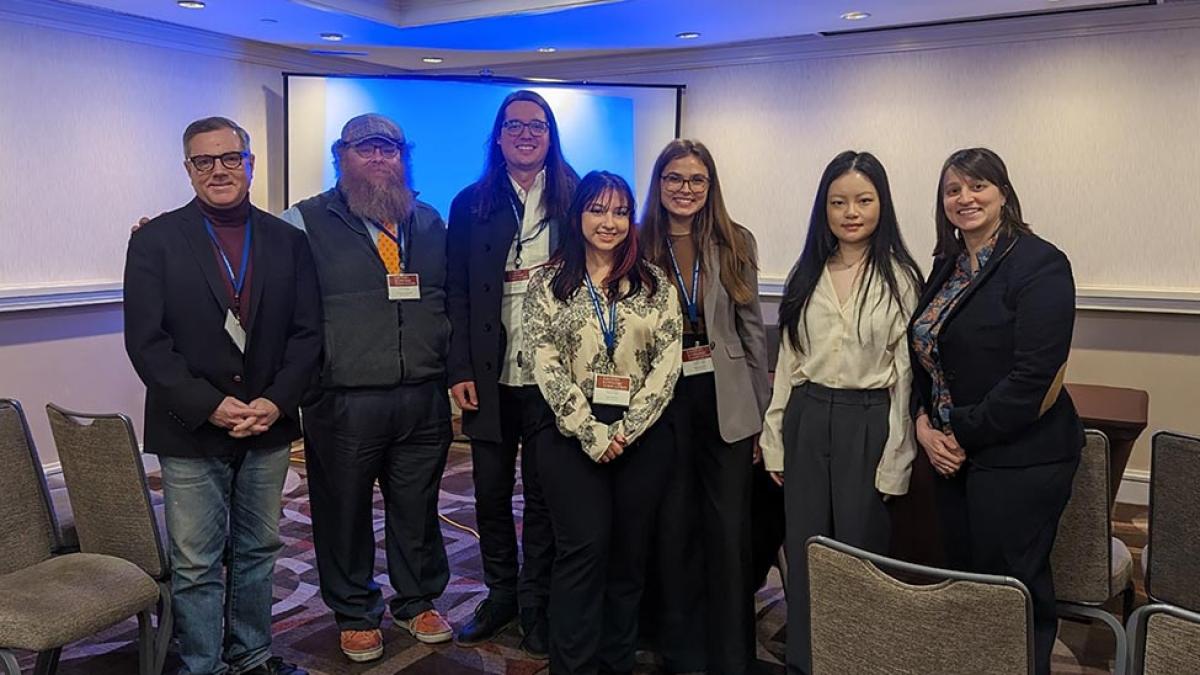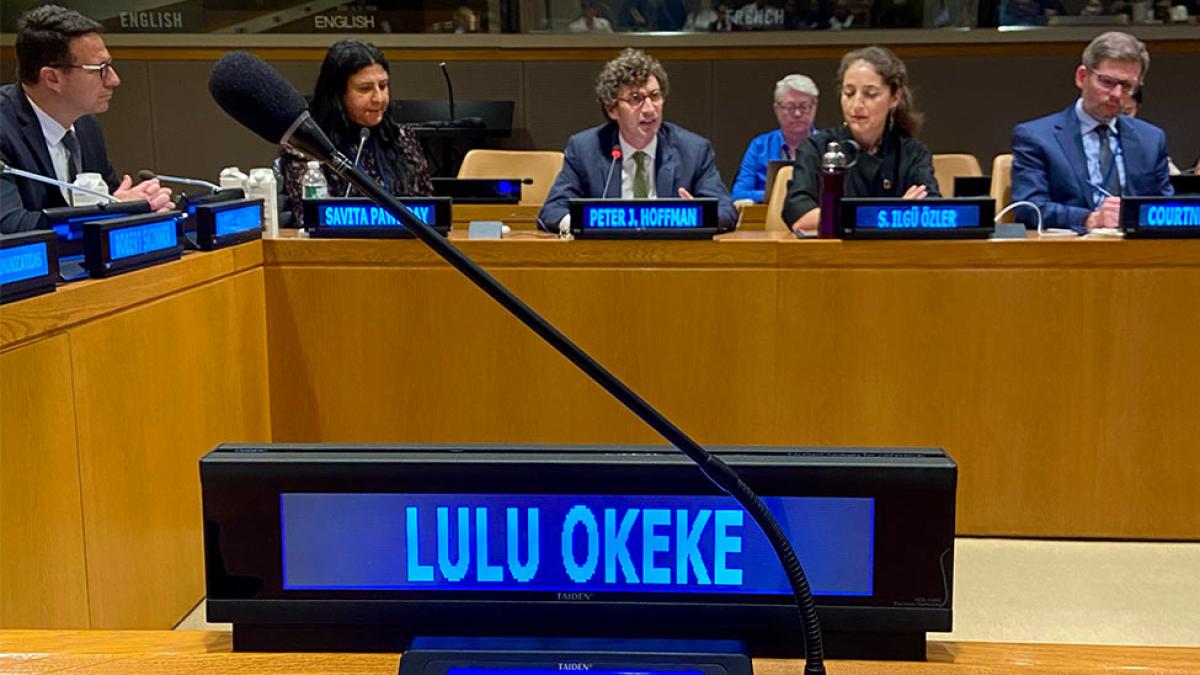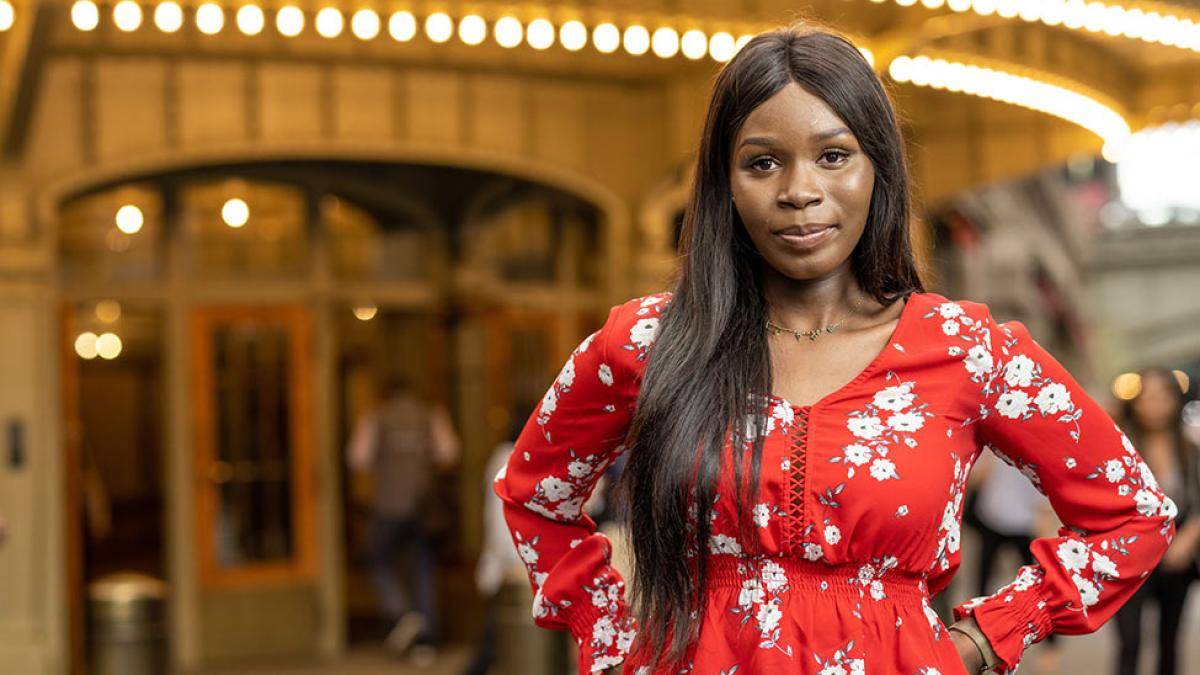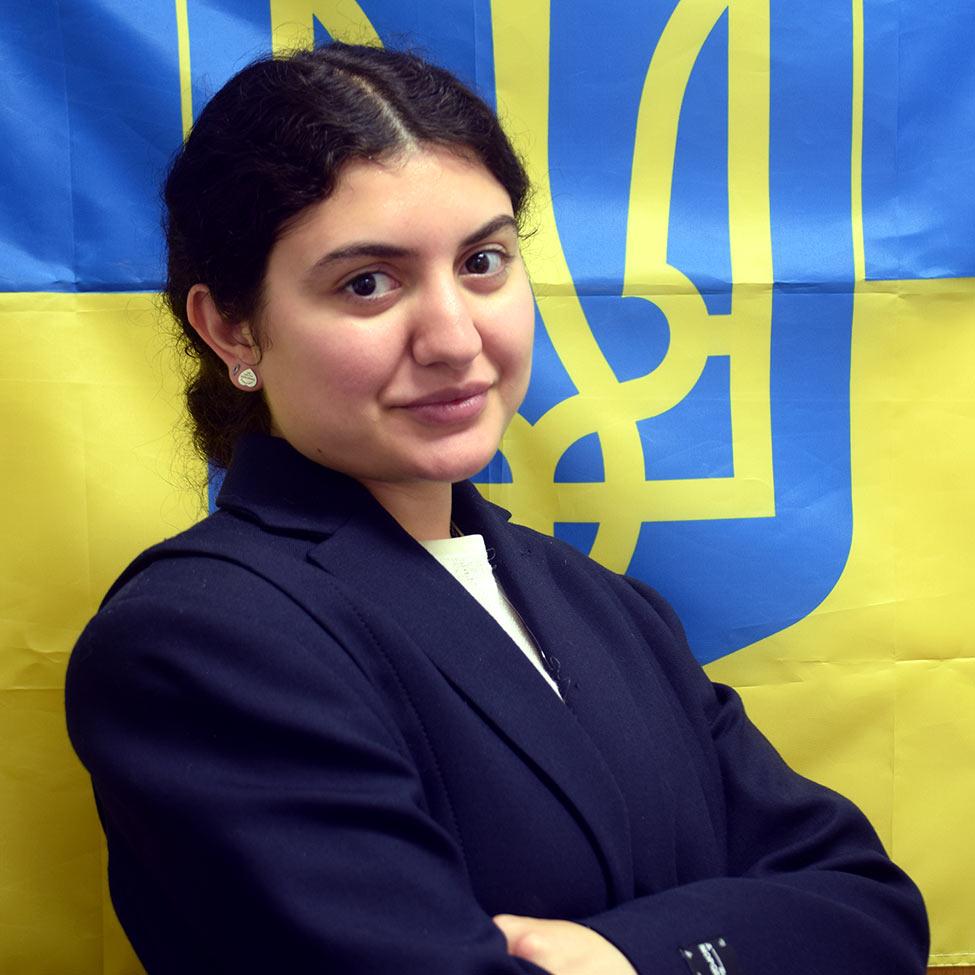
A Slice of Pizza Success with Leo Krkuti '17
Leo Krkuti '17 knows good pizza—not just because he's a native New Yorker, but because he comes from a family of successful pizzeria owners. On this episode of The Lubin Link, Leo discusses how his marketing degree helped him open his own pizzeria, Traditas Pizza, and how he received a raving review from an A-list celebrity.


The Lubin Link Podcast
Leo Krkuti '17 knows good pizza—not just because he's a native New Yorker, but because he comes from a family of successful pizzeria owners. On this episode of The Lubin Link, Leo discusses how his marketing degree helped him open his own pizzeria, Traditas Pizza, and how he received a raving review from an A-list celebrity.
This episode was recorded on September 18, 2023.
Tune into the Lubin Link podcast to hear how guests went from go-getting Lubin students to successful entrepreneurs, social media mavens, directors, CEOs, and beyond. They offer their best tips to students and share how you can make the most out of your #LubinLife.
Economics-Driven Humanitarian: Q+A with Anastasia Khanukov '24
Anastasia Khanukov, highlights her unique path from an interest in politics and international relations to a deep dive into economics and research, exploring topics that impact society profoundly.
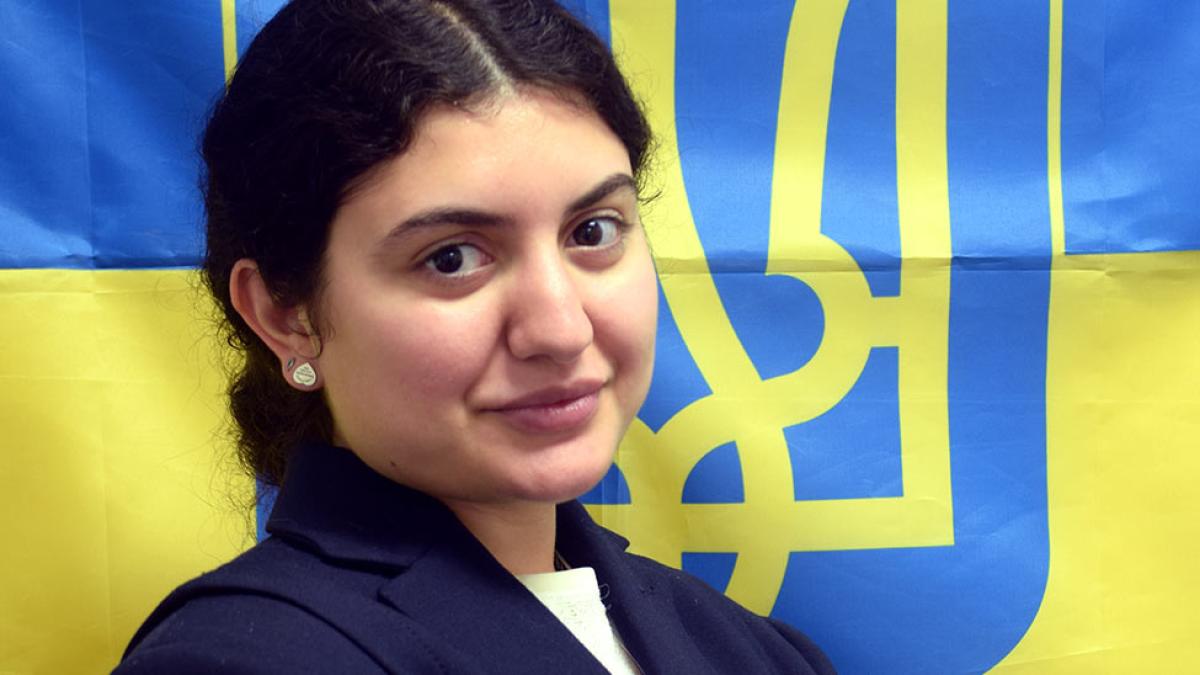

Anastasia Khanukov
Class of 2024
How did you become interested in pursuing a Bachelor of Arts in Economics?
I was very interested in politics and international relations but also knew that the state of a country’s economy is paramount, so I decided to focus on economics and research topics that affected the population. This includes labor markets, geopolitical conflicts, and even movements concerning feminism.
How were Dyson or other faculty members instrumental in your personal and/or professional journey?
The Economics department on the New York campus has been nothing but supportive and informative. I have taken a variety of classes, ranging from behavioral economics to statistics, and this diversification of topics has opened doors to many research opportunities for me. Moreover, the Economics faculty, including professors Shostya, Weinstock, and Baruch, have provided me with endless mentorship and furthered my path to graduate school through my undergraduate research. With their help, I have had many opportunities to grow and gain knowledge, serving as a foundation for both future academic endeavors and a career.
What internships have you had?
I had an internship at the New York City Council, one obtained through a class that focused on economics and Latin American politics. I also had the opportunity to work for the Department of Homeland Security, Immigration, and Customs Enforcement (ICE), assisting attorneys with their trials and engaging in country research and client documentation. This allowed me to focus on research on humanitarianism in developing nations. In addition, I worked for the International Rescue Committee, focusing on Ukrainian refugees and their well being. In my role, I provided translation services and helped with job searches and career networking. This is a clear example of how economics impacts the lives of so many, and, as a Ukrainian-American, it was important for me to help these individuals get back on their feet.
What activities and organizations have you been involved with as a student?
I am currently vice president of the Economics Society and have had the privilege to work with wonderful executive board members and develop close relationships with faculty and staff. In addition, I was a part of Model United Nations, which allowed me to represent the Republic of Mozambique and compete on the Pace University team. We received multiple nominations and awards at this competition.
I was also selected to be a part of the 2023 class of the United Nations Academic Impact and Millennium Campus Network (MCN) Fellowship, a semester-long global program through which I will work with my Pace student colleagues on projects that advance the UN’s sustainable development goals.
The Economics faculty have provided me with endless mentorship and furthered my path to graduate school within my undergraduate research. With their help, I have had many opportunities to grow and gain knowledge, serving as a foundation for both future academic endeavors and a career.
What challenges have you overcome and are proud of? What inspires you?
My biggest challenge has been balance. It is difficult to get into a rhythm when you have school, internships, and a social life to balance. However, by establishing a routine, I was able to feel more at ease within such a busy schedule. This has allowed me to not only take on challenging classes, but also work during the school year.
My parents inspire me every day. As a first-generation American, I had to figure out a lot of things on my own, as my parents were born in Ukraine and came to the United States as refugees. Their struggles did not stop them from succeeding, so I look up to them every day as they are such a supportive system for me.
What are your plans after graduation?
I want to go straight to graduate school so I can gain more academic knowledge and focus on my own research, primarily surrounding international politics and humanitarian issues. Later, I would like to pursue a doctoral degree. Thanks to my Economics degree, I am open to a range of diverse career choices and areas of specialization.
What advice would you give to students?
My biggest advice to students is to use all resources available to you. At Pace, we are provided opportunities for career assistance, mentorship, research positions, and a diverse range of clubs and organizations to participate in. The faculty, administration, and staff are here to help you, so make use of their expertise. Not only will this guide you through challenging semesters, but also allow you to expand both your academic experience and resume.
More from Pace
First-generation college student Olenka Besaga's passion for data analysis and research, alongside her impressive internship experiences, sets her on a path of academic excellence and personal growth.
At Pace, I can channel my passion where it thrives: Learning and creating ways to change the economy for the better.
Highly motivated economics student Hanyu Li, alongside Dyson Professor Mary Kaltenberg, are investigating a little-studied topic: how does a person’s general appetite for risk impact fertility decisions?
Record-Number 22 Dyson Students Named United Nations Millennium Fellows
A record 30 Pace University students have been named to the United Nations Academic Impact Millennium Fellowship Class of 2023, including 22 students from the Dyson College of Arts and Sciences.
A record 30 Pace University students have been named to the United Nations Academic Impact Millennium Fellowship Class of 2023, including 22 students from the Dyson College of Arts and Sciences.
Students accepted into the UN Millennium Fellowship program launch individual or group semester-long projects relating to one or more of the UN’s Sustainable Development Goals, 17 objectives focused on bettering our world. The program connects Fellows to their campus cohort, as well as to other Fellows across the globe.
The 30 Pace students selected for the Class of 2023 are among 4,000 Millennium Fellows from more than 260 campuses across 38 nations—only 9 percent of more than 44,000 applicants were accepted.
Pace has developed a tradition of participation in the Millennium Fellowship, and former Fellows have left a lasting impact on Pace and the surrounding communities. Previous projects have focused on combatting food insecurity on campus, improving access to menstrual products, providing classroom mental health toolkits, and letter-writing campaigns as a source of global connection.
The Dyson students selected for the Class of 2023 are:
- Aidann Gia Bacolodan ’25, Political Science
- Harrison Bakst ’24, Psychology
- Pamella-Rayelle Barais ’25, Political Science
- Isabella Yasmeen Birjandi ‘26, Behavioral Neuroscience
- Jackson Blackburn ’24, Communications
- Austin Chappelle ’26, Environmental Science
- Layne Davis ’25, Peace and Justice Studies and Political Science
- Anastasia Khanukov ’24, Economics
- Ryan Kwon ’26, Film and Screen Studies
- Ellisa Lecointe ’25, Biology
- Lily Lockwood ’23, Undecided/Exploring (Dyson)
- Lilah McCormack ’25, Digital Journalism
- Louisa (Lulu) Moquete ’24, Mathematics
- Kelly Ng ’26, Biology
- Margaret Pereira ’25, Peace and Justice Studies
- Alexis Pickering ’26, Political Science
- Gianna Rotunno ‘26, Undecided/Exploring (Dyson)
- Saloni Shah ‘24, Economics
- Laila Shakir ‘26, Psychology
- Marianna Visbal ’26, Political Science
- Emily Whitehill ’24, Communication and Media Studies
Related Student News
A record-number 30 Pace University students have been accepted into the 2023 class of the United Nations Academic Impact and Millennium Campus Network Fellowship Program, the University today announced.
As part of the United Nations Millennium Fellowship, Lulu Okeke ’24, Global Professional Studies, represented Pace at an Academic Impact panel session called “Higher Education and Multilateralism: Academia Responding to Global Challenges” as part of UN Day.
A record-number 17 Pace University students have been accepted into the 2022 class of the United Nations Academic Impact and Millennium Campus Network Fellowship Program, the University today announced.
Artist Firoz Mahmud Traces Interconnected Histories and Migrations from Bangladesh to New York
Pace University Art Gallery is pleased to present “Inscaping Legacies,” a major solo exhibition by the interdisciplinary artist Firoz Mahmud. Mahmud’s work draws on the histories of the South Asian Bengal region in which he is deeply rooted, and where many historical cities have been transformed by colonialism. Curated by Clinical Assistant Professor of Art and Pace gallery director Sarah Cunningham, MFA, the exhibit opens for viewing on Saturday, September 30 with a later reception on Tuesday, October 3 from 5:00 p.m.–7:00 p.m. The artist will also give a talk about his work on Wednesday, October 18 at 6:30 p.m.
![[B/ Khilji / Islamism in Bengal] artwork by Firoz Mahmud on exhibit at Pace University's Art Gallery](/sites/default/files/styles/16_9_1200x675/public/2023-09/dyson-event-teaser-firoz-mahmud-inscaping-legacies-art-exhibit.jpg?h=8d924784&itok=zHaOT18a)
‘Inscaping Legacies’ Exhibit Opens on September 30 at Pace University Art Gallery
Pace University Art Gallery is pleased to present “Inscaping Legacies,” a major solo exhibition by the interdisciplinary artist Firoz Mahmud. Mahmud’s work draws on the histories of the South Asian Bengal region in which he is deeply rooted, and where many historical cities have been transformed by colonialism. Curated by Clinical Assistant Professor of Art and Pace gallery director Sarah Cunningham, MFA, the exhibit opens for viewing on Saturday, September 30 with a later reception on Tuesday, October 3 from 5:00 p.m.–7:00 p.m. The artist will also give a talk about his work on Wednesday, October 18 at 6:30 p.m.
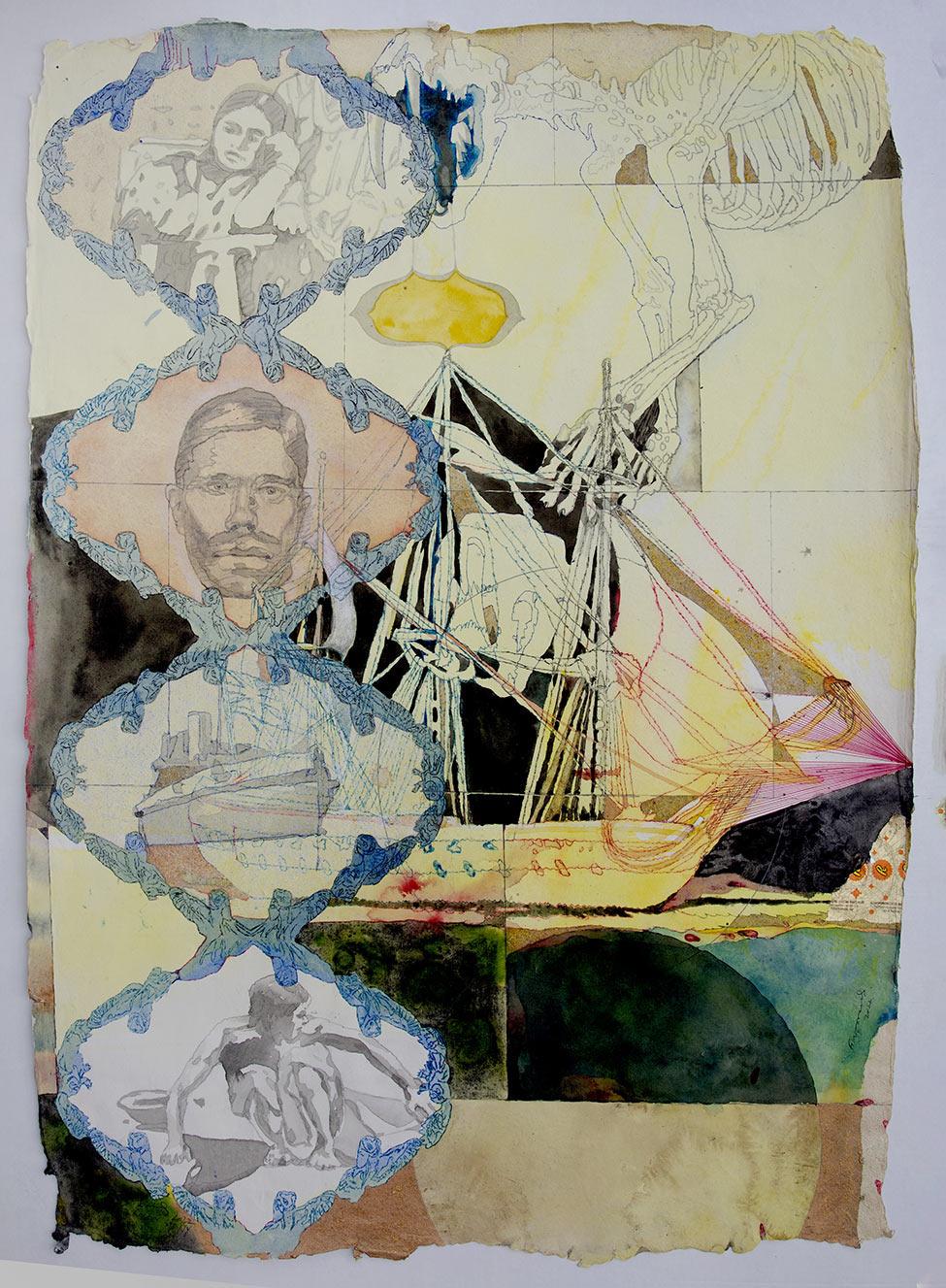
Mahmud traces the paths of these complex legacies along their continuum to the present Bengali immigrant communities in New York City. Mahmud, whose father and grandfather were academic historians and writers, has been drawn to itihash (history) and vugol (geography) since he was young. Drawing and painting in a wide array of media, he now juxtaposes themes of socio-political culture, tradition, history, and myths in a manner that begs the question of how they exist today. Mahmud links disparate times, places, and perspectives through diagrammatic drawings that chart the impact of colonialism and the Bengali diaspora.
For the work in this exhibition, he poignantly interrelates his own and fellow Bengali immigrants’ contemporary experiences moving to New York with Vivek Bald’s research in Bengali Harlem and the Lost Histories of South Asian America, a meticulous reconstruction of Bangladeshi immigration in the late 19th and early 20th centuries that “reveals a lost history of South Asian sojourning and life-making in the United States.”
![“[B/ Khilji / Islamism in Bengal]” from “Syncretic Preach” series.](/sites/default/files/styles/1200_width/public/2023-09/article-inline-syncretic-preach.jpg?itok=IMohiNjz)
In his multilayered palimpsests, Mahmud uses both established and invented iconographies combined with images he draws from historical photographs. He creates seemingly disjointed visual narratives that explore the process of remembering our own cultural histories and those of our neighbors through interconnected depictions of old palaces and forts, spice trees and herbaceous plants, wild animals, migrational and geographical traces, and colonial traders.
“Living and confronting different cultures, regions and horizons vacillated most of my art projects, which made me a person of mixed feelings. But I don't want to lose my own culture, history, and legacy,” he says, emphasizing the imperative of his visual storytelling.
This exhibit, which remains on view through Saturday, October 28, 2023 is made possible by the New York State Council on the Arts with the support of the Office of the Governor and the New York State Legislature. The gallery is located in Lower Manhattan at 41 Park Row.
All of the gallery’s exhibits and events are free and open to the public. Regular gallery hours are Tuesday—Saturday from 12:30 p.m.–4:30 p.m. and by appointment.
About the Artist
Firoz Mahmud (b. 1974, Bangladesh) migrated recently to New York from Tokyo under Asian Cultural Council Fellowship and he attended Lower Manhattan Cultural Council’s Workspace Residency 2022–2023 in NYC. He has participated in renowned recurring international exhibitions including the Bangkok Art Biennale, Congo Biennale, Ostrale Biennale, Lahore Biennial, Dhaka Art Summit, Setouchi Triennale (BDP), Aichi Triennial, Sharjah Biennale, Cairo Biennale, Echigo-Tsumari Triennial, 1st Immigrant Artist Biennial NY, Asian Biennale. Mahmud’s art has been featured in exhibitions including at the Office of Contemporary Art, Oslo; MAXXI Museum of 21st Century Arts, Rome; Metropolitan MostingsHus, Copenhagen; Bengal Gallery, Dhaka; “Contemporary Art of Bangladesh, India and Pakistan,” Asia House London; Jamaica Flux, NY; Hunter East Harlem Gallery, NY; Center Pompidou, Paris (COAL Prize); Asia Art Initiative, Philadelphia; Hiroshima Museum of Contemporary Art; and, in Tokyo, Geidai University Art Museum; and Mori Art Museum Center Gallery. In addition, he has had recent solo exhibitions at New Jersey City University and York College, PA. Mahmud was a postgraduate fellow at Rijksakademie VB Kunsten, Amsterdam, and did his MFA at Tama Art University Tokyo and his BFA at Dhaka University. He is represented by Ota Fine Arts (Tokyo, Singapore, Shanghai) and Exhibit320 (New Delhi).
About the Pace University Art Gallery
Founded with the conviction that art is integral to society, the Pace University Art Gallery is a creative laboratory and exhibition space that supports innovation and exploration for both artists and viewers. Open to students, staff, and faculty from across the Pace campuses and, equally, to the Lower Manhattan community and visitors from around the world, the Art Gallery encourages personal investigation and critical dialogue via thought-provoking contemporary art exhibits and public programming. Enhancing the Art Department's Bachelor of Arts and Bachelor of Fine Arts programs, the Art Gallery offers students real-world opportunities to exhibit their own art and to work directly with professional artists to install and promote exhibitions. All exhibits and events are free and open to the public.
About Dyson College of Arts and Sciences
Pace University’s liberal arts college, Dyson College, offers more than 50 programs, spanning the arts and humanities, natural sciences, social sciences, and pre-professional programs (including pre-medicine, pre-veterinary, and pre-law), as well as many courses that fulfill core curriculum requirements. The College offers access to numerous opportunities for internships, cooperative education and other hands-on learning experiences that complement in-class learning in preparing graduates for career and graduate/professional education choices.
About Pace University
Since 1906, Pace University has been transforming the lives of its diverse students—academically, professionally, and socioeconomically. With campuses in New York City and Westchester County, Pace offers bachelor, master, and doctoral degree programs to 13,600 students in its College of Health Professions, Dyson College of Arts and Sciences, Elisabeth Haub School of Law, Lubin School of Business, School of Education, Sands College of Performing Arts, and Seidenberg School of Computer Science and Information Systems.
Isabelle Hayes '24: An Environmental Impact
With a passion for environmentalism, inspired by her grandfather’s legal background, and while pursuing a MA in Environmental Policy at Pace University, Isabelle decided to pursue law school.
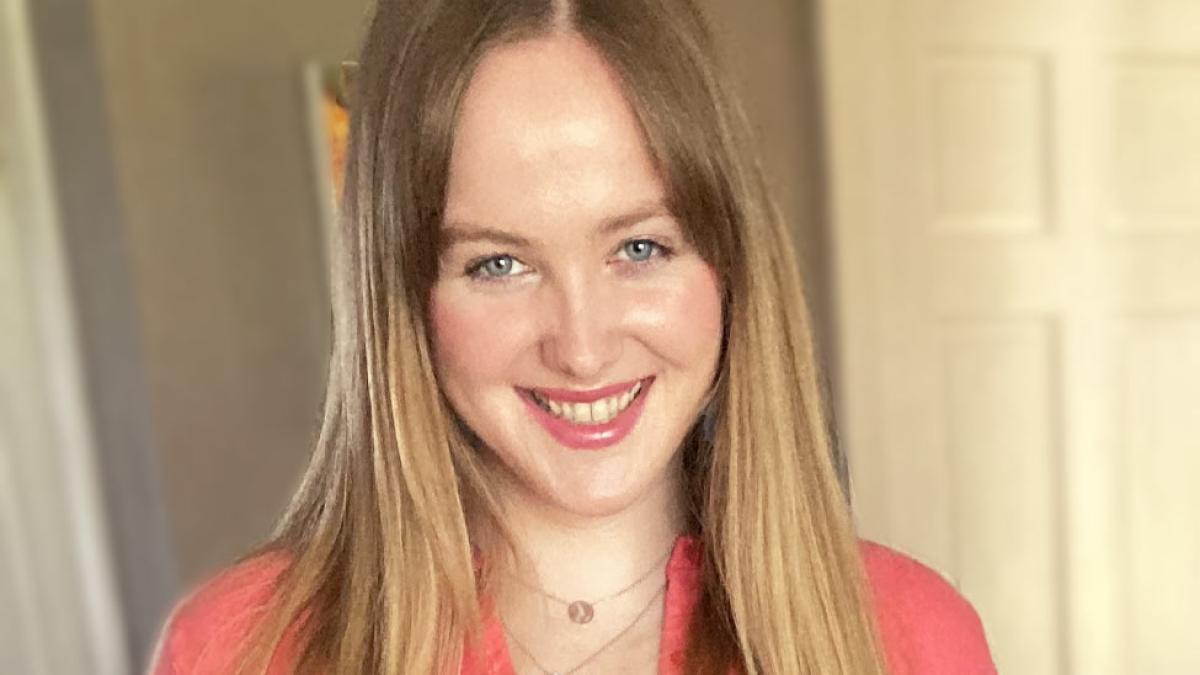
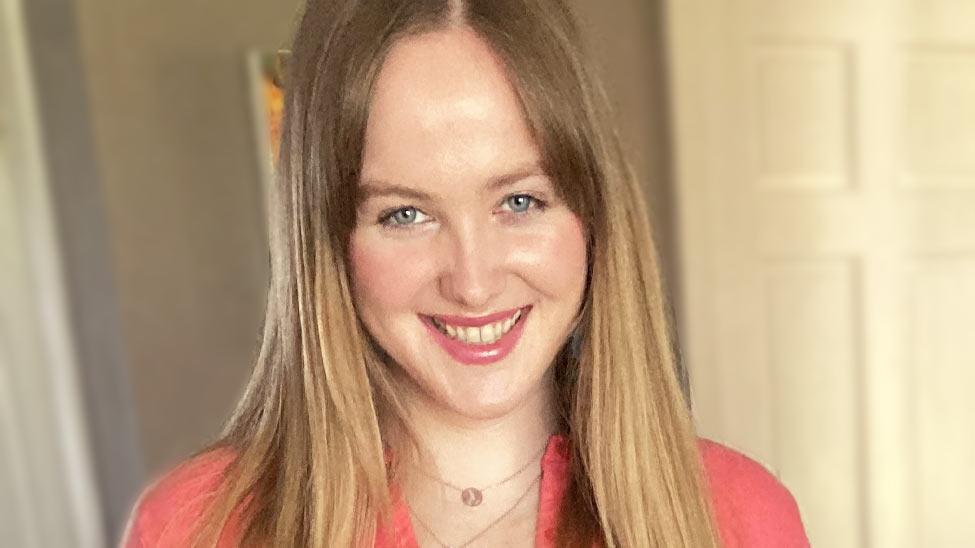
Isabelle Hayes ‘24 is from a big Irish family and the youngest of four. “My mom's parents were Irish immigrants. My dad's father attended Fordham Law in the late 1930s, served as the interim Borough President of Brooklyn in 1961, and was a State Supreme Court justice from 1977 to 1984.”
With a passion for environmentalism, inspired by her grandfather’s legal background, and while pursuing a MA in Environmental Policy at Pace University, Isabelle decided to pursue law school. “I decided to initially pursue a MA in Environmental Policy so that I could have a comprehensive understanding of environmental issues from a policy perspective. During these studies, I found myself more and more interested in the law and I wanted to learn how I could use the law to positively impact the environmental field and help people in my community. My graduate degree from Pace University provided me with a critical foundation to then build my legal skills and knowledge upon and sharpen my environmental focus, specifically in food, agriculture, and land use law.”
In her first two years at Haub Law, Isabelle immersed herself in the various opportunities available to environmental law students. “Professor Nolon and the Land Use Law Center inspired me. I had the pleasure of being part of the LULC beginning in my 1L year. Through the Center, I met a wonderful community of people that are bright, kind, and motivated to have a positive impact.”
During the spring semester of her 2L year, Isabelle participated in the Food and Farm Business Law Clinic and continued with it as a 3L. “The Clinic expanded my knowledge and taught me concrete skills; it provided me invaluable "real world" lawyering experience. It was very rewarding to participate in pro bono work, directly help clients with their needs, and have a positive impact in the food, agriculture, and land use law spaces. I feel very grateful to have been part of this Clinic.” During her 3L year, Isabelle set a goal to help people in her community, promote smart land use practices, and help to preserve and bolster agricultural spaces and communities throughout the state.
While she was a student at Haub Law, Isabelle was fortunate enough to be a summer intern at J&G Law in Walden, NY. Now that she has graduated, she will continue her career path there as an associate in their land use department. “My experiences at Haub Law absolutely gave me a leg up. The Food and Farm Business Law Clinic allowed me to gain experience working with clients one-on-one and gave me immediate responsibility to coordinate with them, partake in client meetings, and produce positive work that the clients expected and sought. The Clinic really helped to develop my professional skills and showed me what it would feel like to be a practicing lawyer in this field. That experience will greatly help me with my post-grad position.”
Isabelle has sage advice for future and current law students: “Be patient and kind to yourself. You chose this path for a reason, do not lose sight of that vision. Choosing to pursue a law degree means choosing to be a leader in your community--take pride in embodying that role and embrace the responsibility that comes with it.”
Faculty Focus: Professor Smita Narula
Born in New Delhi, Professor Smita Narula spent her childhood in South and Southeast Asia before moving to the United States. Inspired by her parents’ work with the U.N., she knew early on that she wanted to engage in human rights work. After law school, Professor Narula accepted a fellowship at Human Rights Watch and remained with the organization for six years, first as an India researcher, and later as Senior Researcher for South Asia. In these capacities, she helped found India’s National Campaign for Dalit Human Rights and the International Dalit Solidarity Network, organizations dedicated to advancing the right to equality for more than 260 million people affected by caste discrimination worldwide.
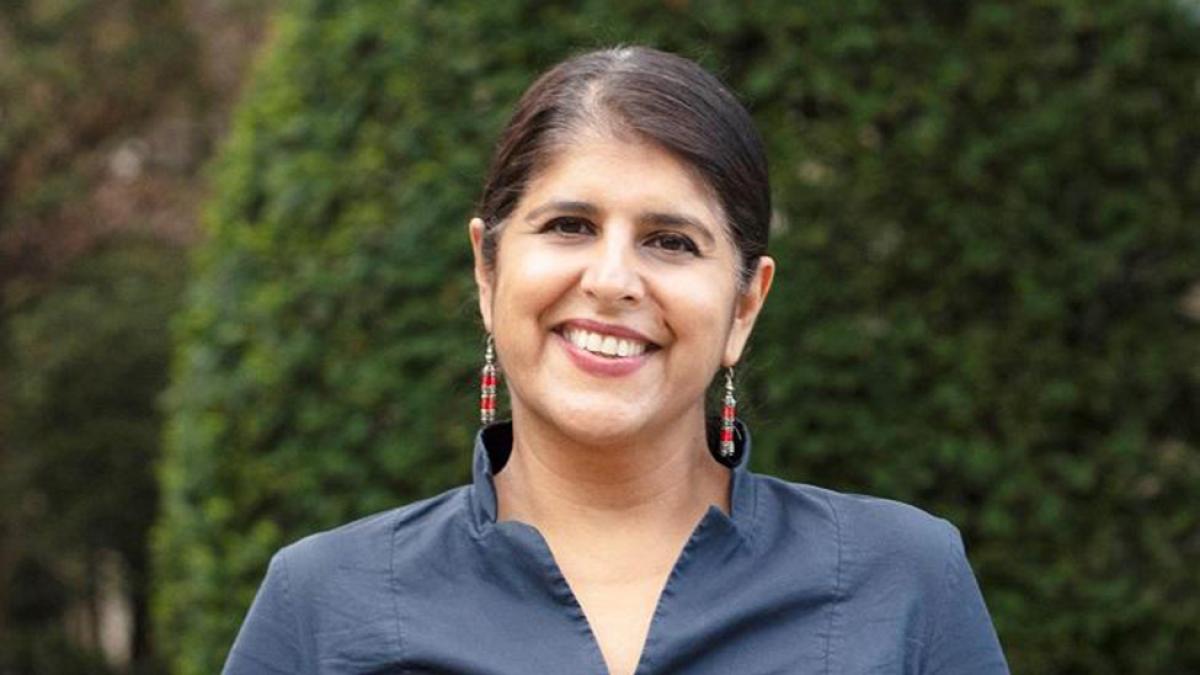
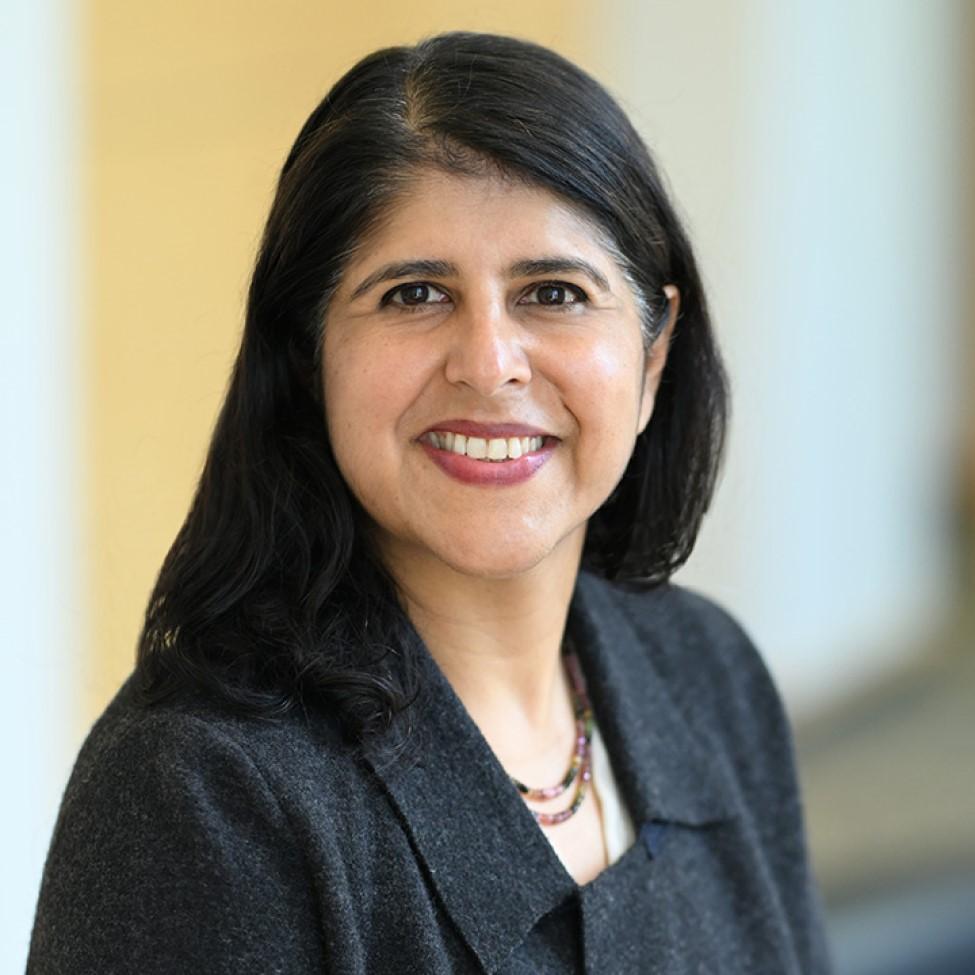
Born in New Delhi, Professor Smita Narula spent her childhood in South and Southeast Asia before moving to the United States. Inspired by her parents’ work with the U.N., she knew early on that she wanted to engage in human rights work. After law school, Professor Narula accepted a fellowship at Human Rights Watch and remained with the organization for six years, first as an India researcher, and later as Senior Researcher for South Asia. In these capacities, she helped found India’s National Campaign for Dalit Human Rights and the International Dalit Solidarity Network, organizations dedicated to advancing the right to equality for more than 260 million people affected by caste discrimination worldwide.
She began her academic career as a clinical professor at NYU School of Law where she taught the International Human Rights Clinic and served as Faculty Director for the Center for Human Rights and Global Justice. During her time at NYU, she was appointed legal advisor to the U.N. Special Rapporteur on the Right to Food. Prior to joining Haub Law in 2018 as the inaugural Distinguished Haub Chair in International Law, Professor Narula was a Distinguished Lecturer and Interim Director of the Human Rights Program at the Roosevelt House Public Policy Institute at Hunter College.
Your research interests and areas of expertise include international law, environmental law, food systems law, and human rights law – what is it about those areas that hold your interest?
Broadly speaking, I am interested in the capacity of law to deliver justice and enable systems change. International environmental law and international human rights law each embody a profound vision for who we want to be as a society. These visions are lofty, and their implementation is increasingly urgent, but these international treaties exist in frameworks that often lack enforcement capacity and are embedded in a model of development that is fueled by destructive cycles of extraction, production, consumption, and waste. The environmental and human rights implications of these systems are vast, including in the realm of food. I am drawn to food systems law because how we grow food, and how we treat the people and communities that feed us, holds enormous implications for human rights and for environmental health.
My prior scholarship has focused on the issue of social and economic inequality, its causes and consequences, and the ability of international human rights law to challenge structural discrimination and confront current conditions of economic globalization and development-led displacement. In these articles, I have sought to close gaps in normative and accountability frameworks that undermine effective implementation of human rights guarantees, while simultaneously cautioning that these guarantees cannot be delivered solely through legal platforms or by State actors alone. Rather, these guarantees must be assured through a process of political and social mobilization that in turn compels domestic and global actors to undertake key institutional reforms. I have also developed a considerable body of work on the nexus between law and human rights in South Asia, including the human rights implications of caste systems.
What are some of your current research interests and projects?
My current scholarship explores how social movements are using the narratives and frameworks of food sovereignty and climate justice to address environmental crises, ensure human rights, and inform the trajectory of law from the ground up.
My article “Confronting State Violence: Lessons from India’s Farmer Protests,” was recently published by Columbia Human Rights Law Review. In December 2021, following a year of sustained mass protests, farmers in India forced the repeal of three controversial Farm Laws that attempted to deregulate India’s agricultural sector in service of corporate interests. I argue that these historic protests arose in response not only to the Farm Laws, but also to decades of state-sponsored ecological and economic violence that have relegated millions of Indian farmers to a state of precarity and desperation. I further argue that the protests hold key insights for social movements around the globe, and for the future of food in India and beyond. The article analyzes the farmers’ protests using a four-part paradigm to assess contemporary movements for social change: Roots, Resistance, Reform, and Reconstruction.
My current project seeks to answer the question, “Can a Right to a Healthy Environment Deliver Climate Justice?” Climate justice is a concept used to frame climate change, and its impacts, as an ethical, political, and moral issue, and not just an environmental issue. It does so by relating the effects of climate change to concepts of justice—particularly environmental and social justice—and by recognizing that those who are bearing the brunt of climate change have contributed the least to the climate crisis. The article explores the potential and challenges of using a right to a healthy environment (RTHE), which was recently recognized by the U.N. General Assembly, as a tool to remedy climate injustices. I argue that while a standalone RTHE will not cure some of the structural deficiencies of international human rights law—namely the limits to its extraterritorial application and its inability to hold private actors accountable—it can potentially be used as a tool to compel some high-emitting States to mitigate their greenhouse gas emissions and regulate the activities of fossil fuel companies.
Why did you want to become a professor?
Teaching isn’t something I always knew I wanted to do but once I began (first as an adjunct professor at Columbia University more than 20 years ago) I was hooked. I have also long been engaged in research and writing as a means of exploring and advancing human rights law and its protections. The ability to combine these interests, and to be part of a dedicated community of scholars and practitioners, is something that no other profession affords. I also do not take lightly the responsibility of teaching the next generation of lawyers who have in front of them a formidable task given the various crises we face. My aim is to ensure that our students graduate with the confidence, insight, and legal skills needed to take on these challenges and to do so in a manner that is both impactful and personally fulfilling.
What advice do you have for law students who want to gain experience in human rights law?
I first tell them that the path to practicing human rights law is not always straight forward, and in fact can be quite circuitous. There are many professional experiences that can serve as useful stepping stones toward a human rights career, including pro bono work at a law firm or work with the human rights section of a bar association. I also remind students of the importance of getting their papers published. Publications serve an important credentialing function. They signal one’s interests and expertise to potential employers and, as I remind my students, also help strengthen their own voice while shaping key debates in the human rights field.
An interesting and impressive fact that I learned about you is that you speak five languages – French, Hindi, Spanish, Urdu, and English – tell me more about that and how it has impacted you and your career.
Although English was my first language, I grew up in a Hindi and Urdu speaking household (I also watched a lot of Bollywood films growing up which helped these languages stick!). I learned French and Spanish at the United Nations International School (UNIS) in New York. I feel very lucky to have been exposed to so many languages. It has served me well in my professional work (investigating human rights abuses in India, for example, or advocating for human rights reforms with U.N. member states). And on a more personal level it has deepened my sense of belonging and connection with communities across cultures and borders.
Aside from law, how do you spend your spare time?
Outside of work I enjoy spending time with my family and friends. After so much time having to be apart, being able to be together again feels like a gift, and something we can no longer take for granted. I also enjoy practicing meditation and yoga and listening to music from around the world, which brings me a great deal of joy.
Pace University Partners on Opportunities in Africa Conference
The fourth annual Opportunities in Africa Summit will be held in downtown New York City from September 18-20, 2023, at the Marriott Hotel Downtown.
Delegates from around the world will be attending the conference, which takes place alongside the United Nations General Assembly, to meet and engage with investors and entrepreneurs who are currently innovating business and economic growth opportunities in Africa.
In its Fourth Year, Representatives from Nigeria, Senegal, Rwanda, Ghana, Guinea-Bissau, Cabo-Verde, Angola, Tanzania, and Kenya to participate
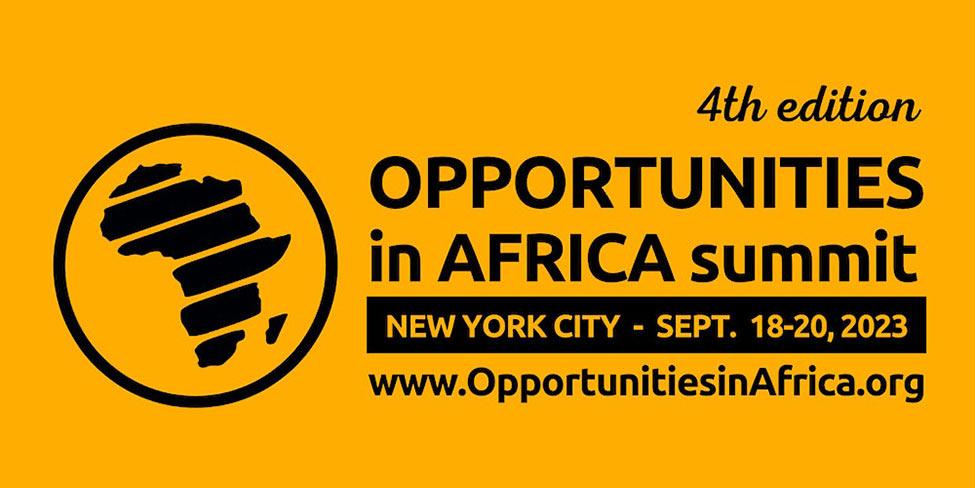
The fourth annual Opportunities in Africa Summit will be held in downtown New York City from September 18-20, 2023, at the Marriott Hotel Downtown.
Delegates from around the world will be attending the conference, which takes place alongside the United Nations General Assembly, to meet and engage with investors and entrepreneurs who are currently innovating business and economic growth opportunities in Africa.
“We are thrilled to host the fourth edition of our flagship conference, Opportunities in Africa Summit, in New York City once again,” said Kémo Touré Jr., CEO of Wutiko. “Africa is full of exciting opportunities for growth and investment. We are building a platform that connects investment with opportunity and puts entrepreneurs in front of the people and organizations that can have a direct impact on their trajectory.”
This year’s theme is Access to Capital, the Wall Street Way, and will include multiple pitch sessions, as well as keynote and panel sessions with key individuals from the worlds of sport, real estate, and creative industries.
Amadou Gallo Fall, President of Basketball Africa League (BAL), alongside ex-Chicago Bulls player Joakim Noah will be speaking in a fireside chat about business opportunities in African sports. With many ties to the NBA, in particular through BAL’s direct connection as the NBA’s African league, the summit will include panel discussions with NBA professionals, including players.
One of the most impactful aspects of the summit is the opportunity for entrepreneurs to pitch their ideas during focused investor sessions. These pitch sessions enable entrepreneurs in the fields of technology, real estate, and creative industries to connect with opportunity for investment and support as they grow their businesses.
“Pace University is proud to be a partner with Wutiko and with Opportunities in Africa,” said Dr. Christelle Scharff, Associate Dean and Professor of Computer Science at Pace University’s Seidenberg School. “This conference builds strong partnerships with countries in Africa for Pace students and faculty. I look forward to more of these projects and opportunities to involve more students with Africa’s rapidly evolving tech economy.”
For more information about Opportunities in Africa 2023 and to register, please visit the website or write to press@opportunitiesinafrica.org.
About Pace University
Since 1906, Pace University has been transforming the lives of its diverse students—academically, professionally, and socioeconomically. With campuses in New York City and Westchester County, Pace offers bachelor, master, and doctoral degree programs to 13,600 students in its College of Health Professions, Dyson College of Arts and Sciences, Elisabeth Haub School of Law, Lubin School of Business, School of Education, Sands College of Performing Arts, and Seidenberg School of Computer Science and Information Systems.
About the Seidenberg School of Computer Science and Information Systems at Pace University
At Pace University’s Seidenberg School of Computer Science and Information Systems, students experience a best-of-breed technology education at one of the first comprehensive schools of computing in the nation. Strategically located in the heart of NYC’s tech scene, the Seidenberg School places students on the doorstep of New York’s most promising companies, whether they are established tech giants or exciting new start-ups. The school offers a range of online and in-person masters programs, including an online Master of Science in Computer Science degree. Through partnerships with leading corporations, banks, federal agencies, and global entities, the school’s curricula and programs are designed to give students the latest in computer science theory and invaluable hands-on practice to ground it. The faculty includes numerous cybersecurity experts who operate labs and centers providing students with practical experience and connections that lead to impressive internships and jobs.
About Opportunities in Africa
Opportunities in Africa is a platform for promoting investment and business opportunities in Africa. Launched in 2018, it aims to connect investors, entrepreneurs, and other stakeholders interested in exploring the potential of African markets and driving mutually beneficial partnerships. The platform provides information and resources, as well as networking opportunities, to support inclusive economic growth on the continent.
Pace University Continued Its Winning Ways at the Susan G. Komen Walk for the Cure
Pace University continued its winning ways as it once again had the largest university team at the Susan G. Komen Walk for the Cure in Central Park – and CBS 2 News has the story. Led by the incredible Dr. Ellen Mandel, 63 members of the Pace Community raised money and walked in the Susan G. Komen Race for the CURE.

Pace University Names Chief Diversity Officer
Pace University announced the appointment of Stephanie Akunvabey as associate vice president for diversity and inclusion and chief diversity officer.
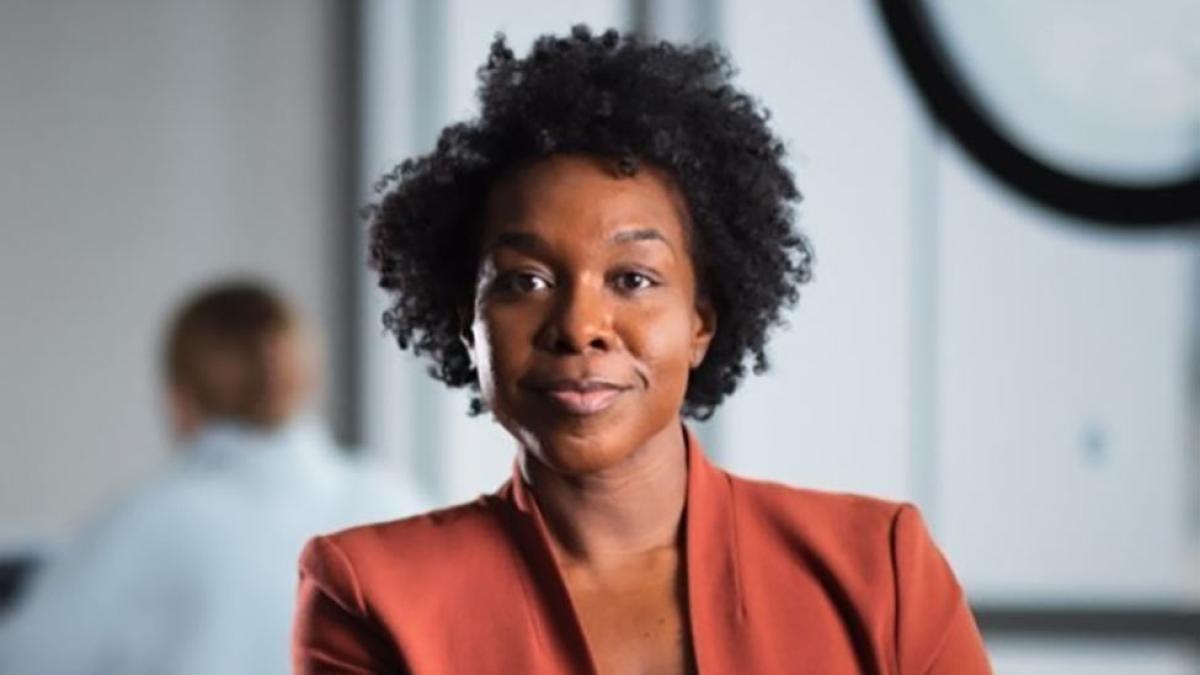
Countering China’s Use of Information Laundering via Minds and Media
Dyson Professor Adam Klein discusses China’s use of information laundering with RealClear Defense.
